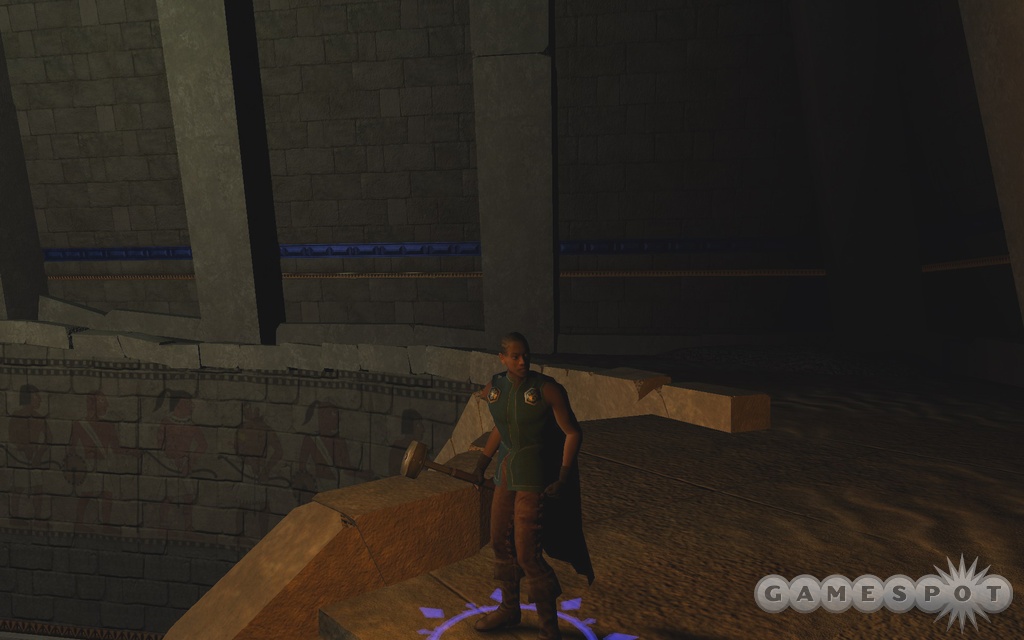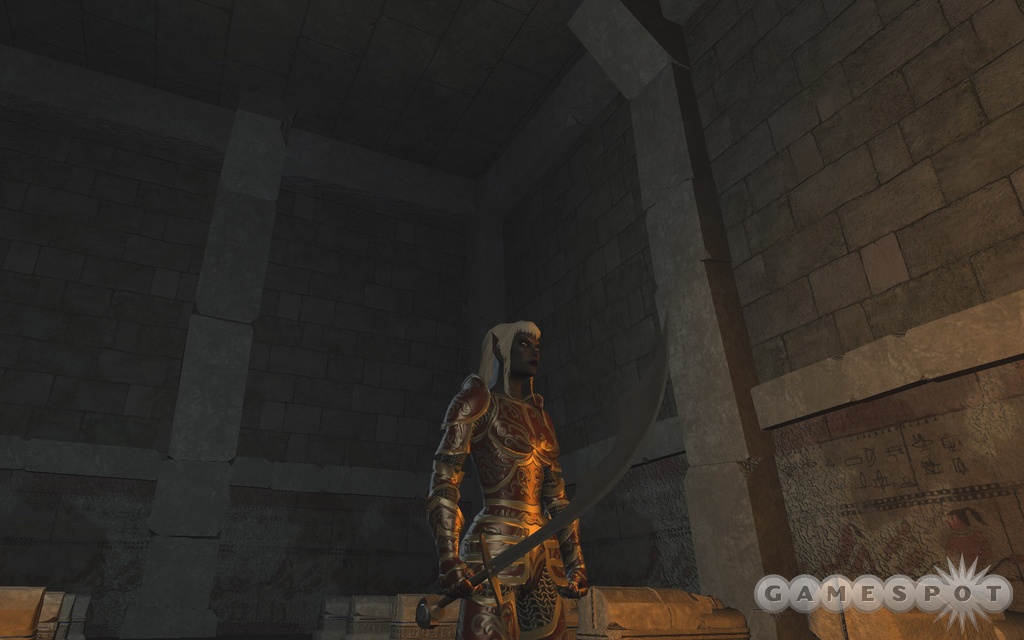Vanguard: Saga of Heroes Impressions - Character Customization and Development, Professions, Graphics
We take an updated look at this upcoming game from some of the original creators of EverQuest.
For years, massively multiplayer online games have featured heroic quests in fantasy worlds, where players created characters to battle with dragons and ogres, as well as sought fabulous treasures in persistent realms. The popularity of high fantasy in these games is due in no small part to the groundbreaking EverQuest, which was one of the first 3D graphical massively multiplayer games that offered colorful graphics, addictive hack-and-slash gameplay, and a remarkably stiff challenge. Some of the original creators of EverQuest, including Brad McQuaid and Jeff Butler, moved on after the original game to found an all-new studio, Sigil Games. The new studio is hard at work on an all-new project, Vanguard: Saga of Heroes. We took an updated look at this upcoming game, and we have new info on its character customization options and skills.

Like other fantasy games, Vanguard will feature a host of fantasy races from which you can choose your own character, including humans, barbarians, and dark elves. Sigil's Jeff Butler openly cites the character creation system of Star Wars Galaxies as being "probably the best one out there today." That game lets players make numerous adjustments to facial features, such as eyes, lips, and ears, but Vanguard will expand even further on this sort of detail, since it will feature an adjustable skeletal system that will let you adjust the distance between facial features (such as how close your character's eyes are to each other). You'll be able to click and drag actual bones in your character's face to get the desired results, as well as use a "random face selection" option to let the game choose one for you. These features will actually be used by the game's skeletal and facial animation systems (in other words, your character's face won't just be a static mask painted on his or her head). Choose characters with large eyes separated at similar distances to give them the appearance of being siblings, and then watch them both squint and cringe naturally as they get beaten savagely by dungeon kobolds.
Butler went on to demonstrate how the graphics engine will help players create characters that look even more distinctive (one of the commonly cited problems with the original EverQuest was that eventually all characters of the same race, gender, and class ended up looking identical). Aside from being able to adjust your character's stature by manipulating his or her skeleton (to have broader shoulders or longer arms, or to simply be big-boned in general), you'll be able to create a character who wears highly distinctive clothing and armor that won't slow your computer's performance to a crawl. Some other games in recent years have let players create highly distinctive characters with many different sets of armor and weapons. However, in these games, as soon as all players appear in the same place (either in a neutral town or on a battlefield where players need to be able to move quickly to survive), all players' computers grind to a halt as they desperately try to render every last different detail.
Vanguard will instead use a texturing and tinting system that will actually render the same suits of armor onscreen as one object, so three different characters wearing chain-mail armor will have the chain mail rendered only once. Armor will automatically be scaled to fit the size and stature of male or female characters, so chain mail on a male barbarian warrior will be rendered with the same computer resources as that same chain mail on a diminutive albino dark elf female. However, it will shrink to fit the smaller character like a glove. This savings in processing power has let Sigil focus on higher levels of texture detail. So in one example, we saw a highly detailed suit of plate armor adorned with brigandine joints.
Vanguard will even model nuances, like hooded cloaks and visored helmets that can be raised or lowered. That is, if your character wears a cloak, you'll be able to wear the cowl up or down; likewise, if you wear a helmet, you'll be able to wear the visor up or down. These nuances should hopefully go a long way toward letting you create a highly distinctive-looking character who can actually show his or her face (rather than being forced to hide it under a helmet for protection). The game will also support bump-mapping and high-dynamic-range lighting to further differentiate the appearance of varying armor, weapons, and items, but at only a marginal cost of processing power.
We were also able to get some idea of how character customization will work in terms of actual gameplay and skill sets. Vanguard will use what the developers call a "job system," which essentially puts all character professions of a specific type on a level playing field. Sigil's Brad McQuaid cited the example of a "heavy fighter," a fighter who wears heavy armor for the purpose of soaking up enemy attacks (or "tanking") while less-armored allies fight from afar. Vanguard will have multiple heavy fighter classes, including front-line warriors and paladins that use divine magic, but each of these classes will be more or less equal in the "job" of being a front-line heavy fighter. As a result, each will be able to take a beating more or less equally well. The real difference between the characters will be situational, which means paladins and warriors will have additional abilities that will differentiate them further.

Butler and McQuaid were quick to point out that the job system is being designed to solve the problem of having a few "essential" character professions in a party (with the rest being "nonessential"). Having worked on EverQuest themselves, the two developers were more than familiar with the age-old problem of trying to find a group while playing as one class and discovering that no available groups wanted your profession. The job system will hopefully make sure that any heavy fighter will be able to fit into a heavy fighter slot (rather than having parties settle for nothing less than a paladin, thus leaving the warriors out of luck), as well as ensure that later in evening sessions (as some players start to call it quits), existing groups will be able to consolidate with other members.
Vanguard: Saga of Heroes has been in development for some time, but details have been scarce. What we've seen so far does look promising, and the fact that the developers refuse to shy away from offering a real challenge to players (while other recent games have attempted to make things easier and easier for players) seems intriguing. There's no official release date set for Vanguard, but the team assures us we'll see more updates by this year's E3.
Got a news tip or want to contact us directly? Email news@gamespot.com
Join the conversation